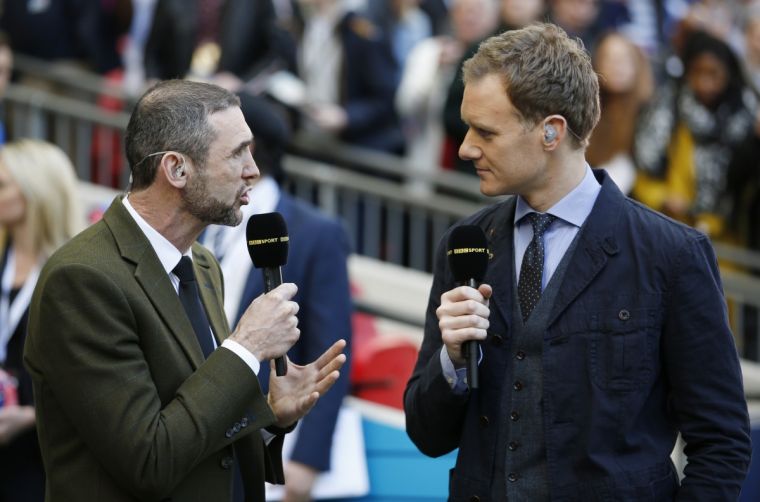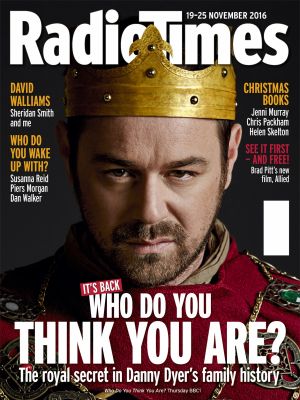Christian BBC Presenter Dan Walker On His Faith And Why He Won't Work Sundays

Christian broadcaster Dan Walker has confessed he has been offered top jobs that would involve working on Sundays.
He turned them down because his evangelical faith is "more important".
In conversation with celebrity broadcaster Eamonn Holmes, Walker also says it was thanks to Holmes himself that he has found himself as BBC Breakfast presenter.
In an interview for Radio Times, he said that even if he were to be offered the top job in broadcast sport, presenting BBC Sports Personality of the Year, he would have to turn it down as it is on a Sunday night.
"I've been in that position before with people who offered me large and significant carrots, and my answer then would be the same answer that I'd give you now.
"As a Christian, I'd say that some things are more important than even the best job in the world."
Holmes said he was a Christian too but this did not involve not working on the Sabbath.
Walker replied: "I totally understand. But for practical and spiritual reasons it's really important to me. It's a personal decision I made for the good of my family, and I've managed somehow to maintain it for 20 years. I'm in the job because I love doing it, but it's not the be all and end all."
He described how he got his present job.
He told Holmes: "Some bloke called Eamonn Holmes rang me up then sat me down for lunch and said, 'Why aren't you doing breakfast television?'
"I said, 'I haven't even considered it.'
"You said, 'Well you should do because you'd be perfect.'
"I don't know whether you've got a strange power but about three months after that I had a phone call from somebody saying, 'Things are changing at the BBC – would you be interested?'."
His first piece was to report live for three-and-a-half hours on the conclusion of the Hillsborough inquest from Liverpool Cathedral.
Walker said: "I didn't sleep that night, not because I was worried, but because I knew it was important that I couldn't get anything wrong, not just for myself but for the people I was representing, those survivors of Hillsborough and the families of the 96 who cared so much about the content of what I was going to say."
His original career plan did not involve broadcasting. He gave a hilarious account of an interview he went to for a teaching job.

"The big plan was go to university, do history and then get a job teaching history and PE in secondary school. So I went to university, I did history and then I went to an interview in Sheffield in a borrowed suit with a football kit on underneath, because I was playing for the university that afternoon."
It was typical "good cop, bad cop" interview, he said.
The "bad cop" interviewer said: "I see you're wearing red socks and, from your demeanour, my concern is that you're the sort of teacher who will give the kids a high five at the end of the lesson but won't actually teach them anything."
Walker took that as an affront – so he stood up and dropped his trousers, to reveal his football kit underneath. He gave her a passionate speech about why sports were important for children.
She put a big cross on the piece of paper and said: "You're not for us."
Walker's later entered a radio competition to find a new commentator and was given a week's work experience as a result. But he revealed he almost failed to get the gig.
"They rang and said, 'You're on our shortlist for Commentator of the Year. Make sure you're in this Saturday.'
"But I was playing in a university cup final on the Saturday, and I didn't think I was going to win the competition, so I asked my friend to pretend to be me if they rang up. They played the tape of my commentary, which was me in a broad cockney accent going, 'Oh, look at that! Alan Shearer scored a goal from 30 yards against Villa.'
"Then they said, 'That's Daniel, he's our winner this year and he's on the line now.' And my mate is a broad Yorkshireman, so the radio station got angry. It was clear we were two different people.
"They said, 'We don't care who you are – you're not winning this competition.'
"The prize was a week's work experience, so I rang back: 'Can I have a day, and I'll prove to you in a day I'm worth your time?' That was my way in."
Walker movingly described how he is still coming to terms with the death of his friend, Wales manager Gary Speed, who he interviewed on BBC1's Football Focus hours before he committed suicide in 2011.
Walker said: "I still struggle with the fact that he'd memorised the fixtures. I still think about that day an awful lot actually. I can remember it in intricate detail. He came in and, within a heartbeat, he's like, 'How are you? How are the kids getting on?' Then he ran me through the fixtures and dates, the team, what he was worried about, what his hopes and dreams were.
"Then the programme finished. We had a really good laugh, went upstairs and sat in the Match of the Day office. Alan Shearer was in there. He and Gary knew each other really well. We were having a giggle about the game, and I think Alan said, 'Gary, call me next week and we'll organise for the families to get together next weekend in Newcastle.' Gary said, 'Yes, that'd be great, really looking forward to it.'
"Then Gary said, 'Right guys, I've got to go and watch a game.' He said, 'Dan, give me a ring on Monday and we'll organise a get-together with the kids.' I went, 'Perfect, let's do it.' I was in church the next day and my phone was going absolutely bonkers."
He went outside and Shearer was on the line and broke the news.
"We just talked about how is that possible? Still now it's hard to get your head around. I don't think we'll ever know."











